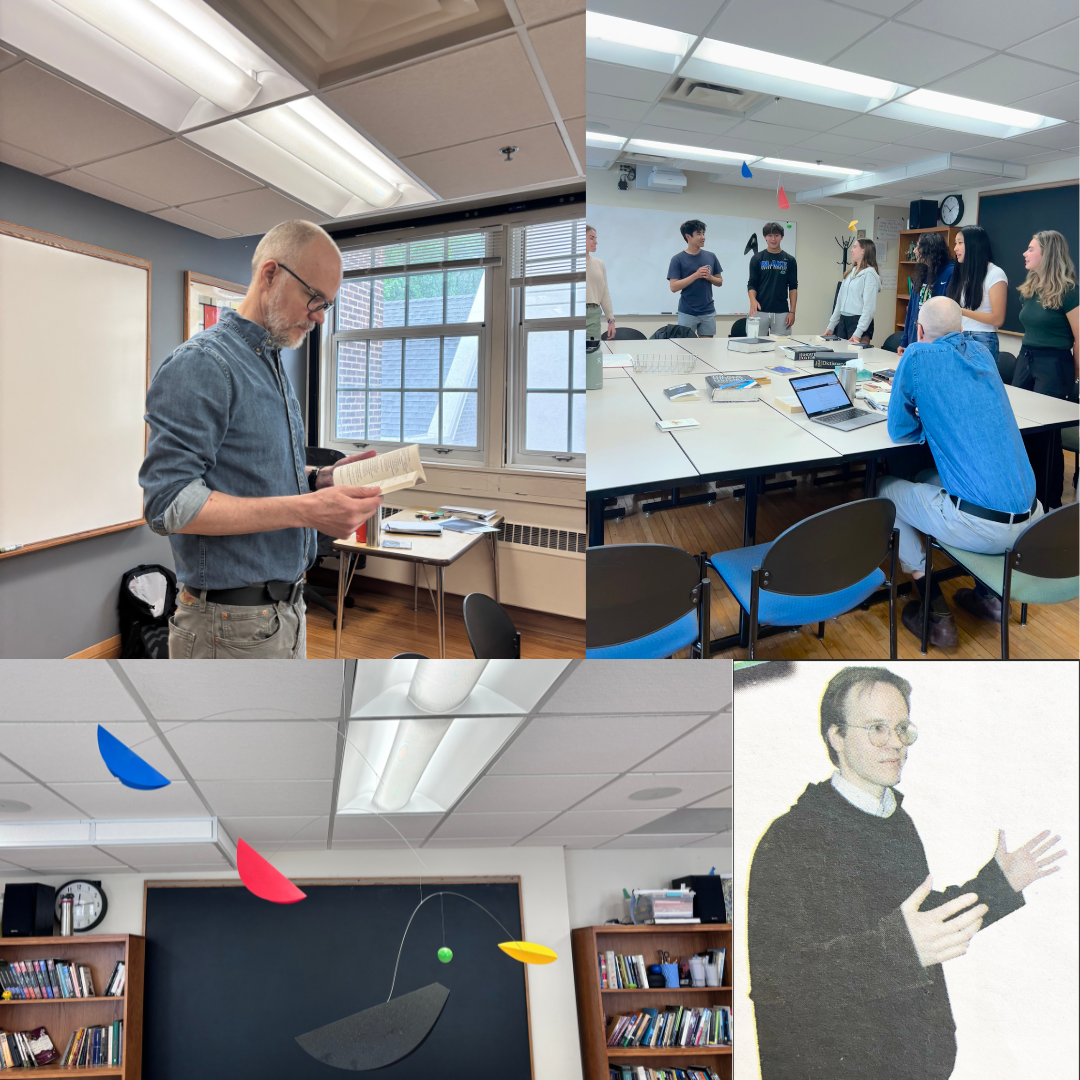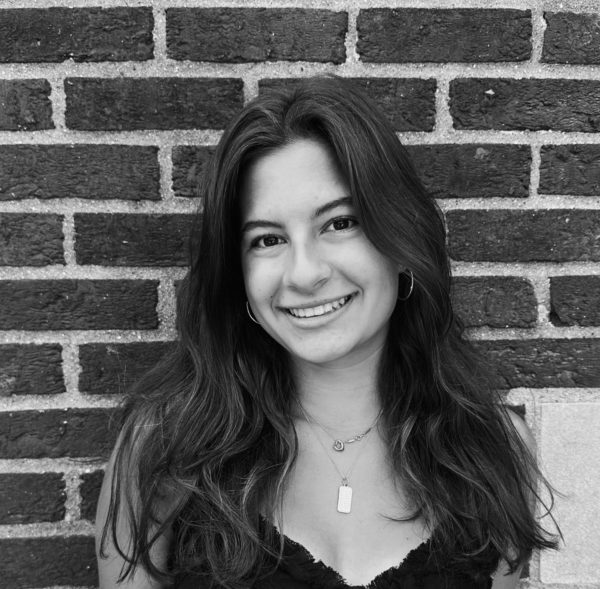“When I was hired, the director said, ‘What do you think you’ll be doing in 10 years?’ And I said, ‘I don’t think I’ll be teaching. I think this is really fun, and I want to do it for now but probably, I’ll do something else in about 10 years.’ And, I’ve stayed for 20 years,” says English teacher Scott Hollander who initially fell in love with teaching during graduate school.
“In high school, I was mostly interested in writing and photography,” says Hollander. “During college, I shifted and became pretty obsessed with literature and writing, and then I was just focusing on that and figuring, ‘Okay, I’ve got to earn a living, but I really want to keep reading and writing.’” Hollander taught while in graduate school and then began teaching at community colleges.
After having his children, Hollander left teaching to enter the business world, but after a decade, returned to teaching. “What I had been doing in business was fun, profitable, and competitive, and those things were interesting, but I personally felt an emptiness when I thought about my work life, and I did not have that experience in teaching,” says Hollander.
Hollander started teaching at the Upper School because he was a Blake parent. He started on a sub-list before eventually replacing a teacher on maternity leave 21 years ago. Throughout his years, Hollander has taught classes ranging from Shakespeare to Creative Writing. Despite the variety in his classes, Hollander has consistently taught AP Literature. Hollander says, “Every year is different and where students are is different and so for a teacher that creates difference, variety…I like to have to adapt to new situations, so periodically I’ve changed what I’m teaching.”
Even with all his courses, Hollander tries “not to have favorite” books to teach. “I try to be open for new things I don’t yet appreciate,” says Hollander. However, Hollander “loves teaching things that are dense in class” and notes authors James Joyce, Shakespeare, Morrison, and Faulkner. “They’re quite different, those writers, but their texts always have a horizon. You can’t really complete them, you can’t see the end of them. They have complexity, but that also…they all have a really profound sense of human life,” says Hollander. “The writers I’ve named, they write beautiful things.”
Hollander comments, “There are different times for different books. There is absolutely a time to just read easy reading, fun, you know detective stories or whatever. There is absolutely a time for that. But for me as a student and me as a teacher, I want to be challenged, and I very openly want to challenge my students. I think they learn, I think it’s how we learn, It’s how I learn.”
To Hollander, what makes a great class is the community. “A group of people sitting around a table…who can be curious about their classmates and what they think and open to learning from anyone at any time, that makes a good class. The material matters, but more than that, the culture of the room matters, or the culture of the people,” says Hollander.
Hollander’s commitment to having fun in class is a large part of his classroom culture. I committed myself to being sure that every week there was some fun in every class and students have enjoyed Wordball, so I was like, ‘okay, once a week we play word ball.’” Wordball is a game of associations, where one person says a word and another has to follow up with a word connected to the original word. The game “came to me in my first year at Blake from a student of mine” and ever since it has become a part of his classroom. “I loved how everyone can participate, everyone gets to participate. It’s playful, but it’s also like you learn,” says Hollander.
Despite working at the Upper School for 21 years, there is not one big moment that stands out to Hollander as his favorite, but rather, describes his favorite memories as a “vast collection of little moments with people. There are just a whole collection of really small moments that are wonderful that a teacher is privileged to have that opportunity to just be with people, to try and understand them, hopefully understand each other, and observe their growth and curiosity…I really most like the day-to-day mutual discoveries that we have in a classroom and just the human exchange.”
Even though Hollander’s teacher role involves teaching others, it has provided him with many lessons. “I have a clearer sense of what’s important in life than I did before I was teaching,” says Hollander. “Small greetings and questions can be helpful…people need to be seen. And I know as a student, I thrived when I was seen by my teachers and I didn’t really thrive when I wasn’t seen by them or when I was misseen by them.”
“We don’t live in an infinite time. I’ve been teaching at Blake for 21 years, it’s gone by incredibly quickly, those decades,” says Hollander. “Teaching makes you time conscious and why does that matter? It matters because a lifetime is only so long…being aware of that fact heightens the value of the moments that we live in it.”









